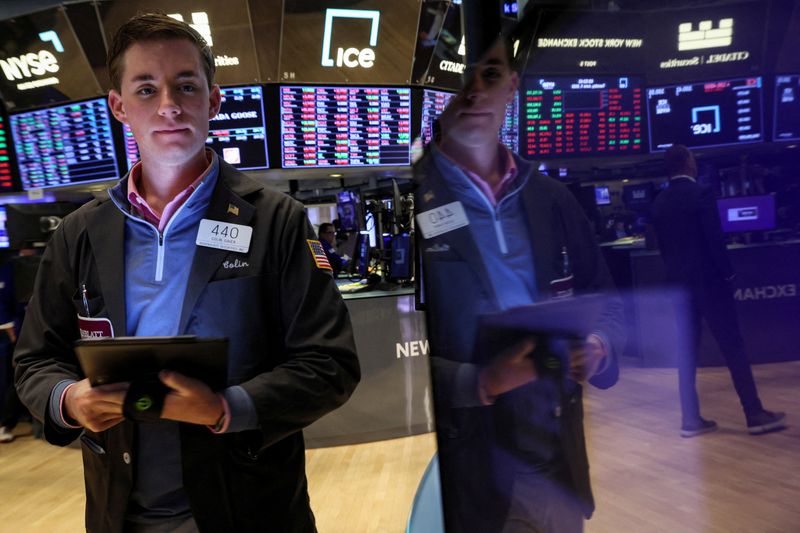This post was originally published on this site

Investing.com — The S&P 500 fell Tuesday after swinging between gains and losses as tech struggled to fight off a jump in Treasury yields following stronger-than-expected economic data.
The S&P 500 fell 0.5%, the Dow Jones Industrial Average lost 0.60%, or 188 points, the Nasdaq was down 0.74%.
Tech was pushed lower as big tech wavered after better-than-expected services data kept the prospect of an aggressive Federal Reserve later this month front and center.
The ISM services index inched higher to 56.9 from 56.7, above the consensus of 55.1.
The odds of the 75-basis-point hike climbed to 75%, up from 63% a day earlier, according to Investing.com’s Fed Rate Monitor Tool.
Treasury yields rose sharply following the strong economic data, with the 10-year treasury yield rising to fresh three-month highs.
Apple Inc (NASDAQ:AAPL), Microsoft Corporation (NASDAQ:MSFT) and Meta Platforms (NASDAQ:META) flirted with gains and losses, but remained in the red.
Sentiment on tech was also soured by a slump in Chinese tech stocks after new Covid restrictions were rolled out in the tech hub of Shenzhen on Monday.
Alibaba (NYSE:BABA) was among the biggest decliners, down more than 3%.
Industrial, however, were roughly unchanged on the day, supported by rising airline stocks on signs of robust air travel demand.
About 2.4 million travelers on Sept. 5, made their way through the U.S. Transportation Security Agency checkpoints, 2.3 million seen pre-pandemic in 2019.
Alaska Air Group (NYSE:ALK), American Airlines (NASDAQ:AAL), and United Airlines (NASDAQ:UAL) were in the green, with the latter up more than 3%.
Bed Bath & Beyond (NASDAQ:BBBY), meanwhile, slipped more than 18% after the home-goods retailer’s chief executive officer Gustavo Arnal died by suicide on Friday.
In other news, Digital World Acquisition Corp (NASDAQ:DWAC), which last year struck a SPAC deal with Trump Media and Technology Group, fell more than 16% after it reportedly failed to win enough shareholder support for a one-year extension to complete the deal.

